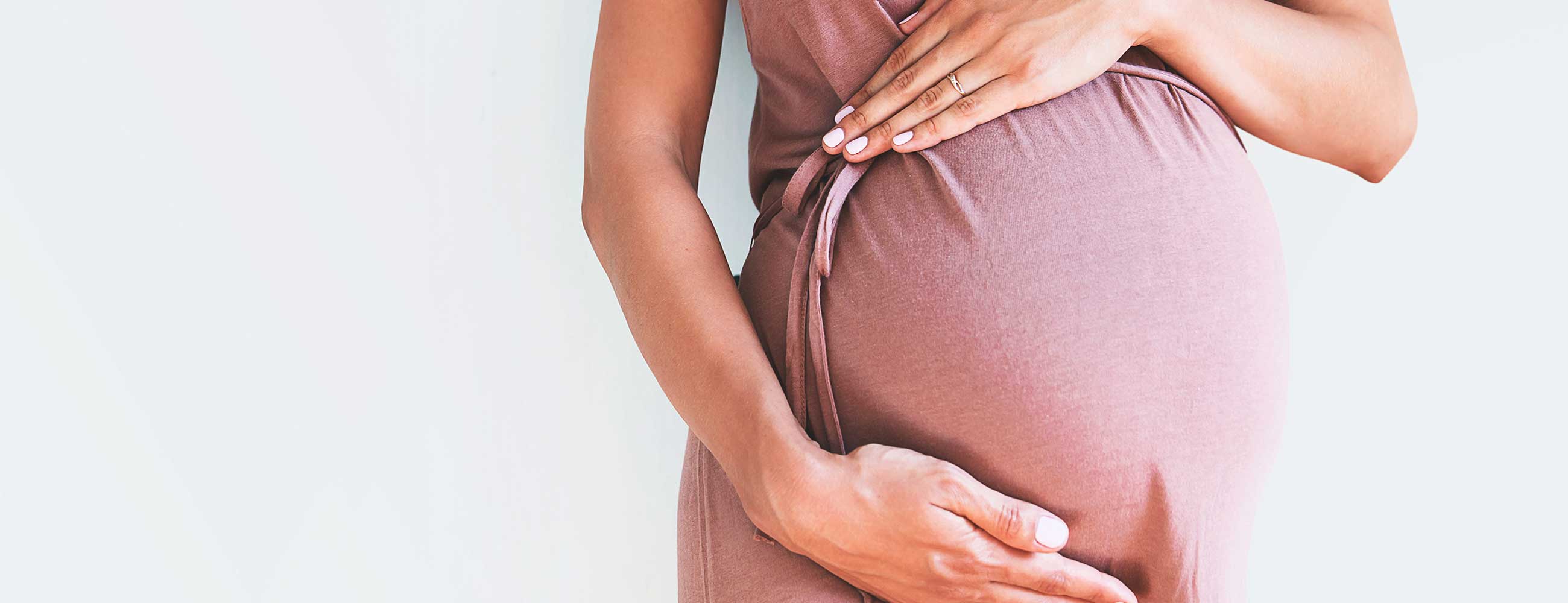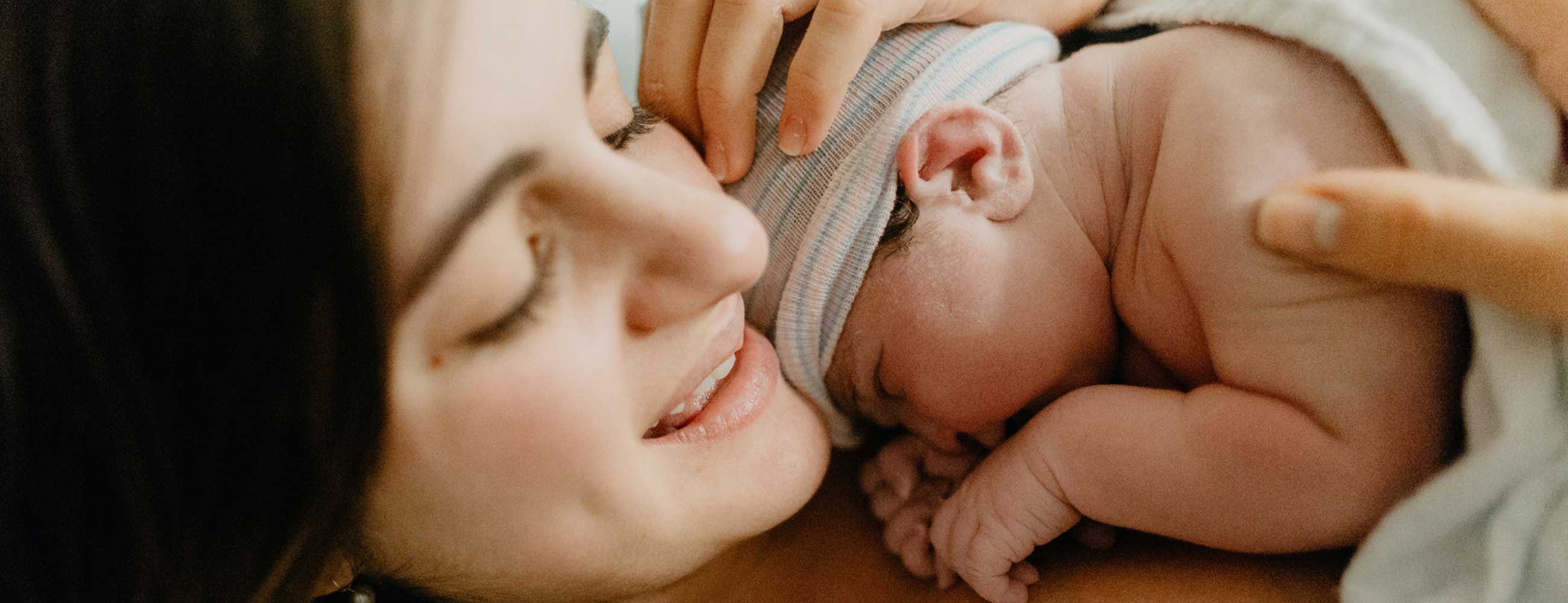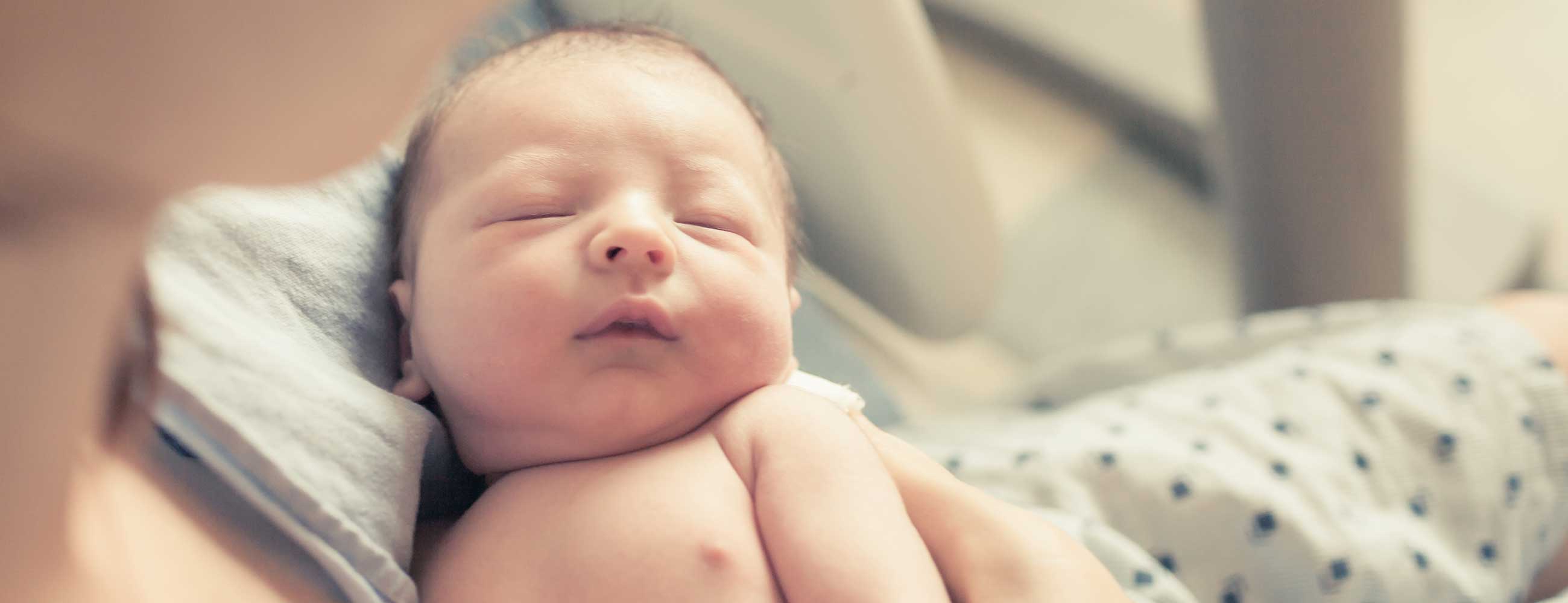Where does the pain come from?
During the first stage of childbirth, called labour or dilation, pain is caused by contractions of the uterus that gradually open the cervix. Generally mild at first, the more labour progresses, the more severe the pain becomes.
It is a pain caused by exertion, a sign that the uterine muscle is working. Pain is intermittent and corresponds to the moment when the uterus contracts. Pain is generally located in the pelvis, but it can also appear in the back or legs, depending on the position of the baby and the uterus itself.
Pain is highly variable
The pain of childbirth is caused by - but not only - very specific mechanisms.
It is very difficult to know how you will respond to pain as it is felt differently from one woman to the next; this is what makes pain so unique. It is therefore futile to compare yourself with your loved ones!
For example, in some cases, the baby’s head is oriented in such a way in the pelvis that it causes lower back pain that is more difficult to bear than ordinary pain (this is known as “back labour”). Pain can also be aggravated by poor posture. This is why more and more maternity wards encourage you to move about during labour. The pain tolerance threshold also varies from person to person and depends on your personal history.
Finally, your pain threshold also depends on tiredness, worry and any previous births.
Pain is not just physical…
You may have heard some women say that they coped well with their contractions, while others suffered and felt out of their depth as soon as labour began. It is not a competition. Everyone is different! Listen to yourself. Your well-being and that of your baby come first.
Even under an epidural, some future mothers say they feel tension in their body and unbearable tightness. Why? The pain of childbirth is not only caused by physical exertion, it also depends on the mother’s psychological condition. The epidural is an analgesic for the body, but it does not act on the mind. The more anxious you are, the more likely you will experience pain.
Throughout the birth, the body produces hormones, known as beta-endorphins, which reduce pain. However, these physiological phenomena are very fragile; many factors can disrupt this process and prevent hormones from having an effect. These factors include stress, worry and fatigue.
Emotional security and a calm environment reduce pain
It is therefore important that you are prepared for the birth and accompanied on the day by a person whom you trust. Emotional security is essential during childbirth, an exceptional moment. If the mother feels safe with her loved ones and the team looking after her, pain will be reduced.
The environment also plays a key role. It has been proven that intense light, continuous walking back and forth, multiple vaginal touches, immobility or even the ban on eating are considered to cause stress.
Uterine pain increases the secretion of adrenaline. This hormone is beneficial during labour and also welcome before the birth, as it gives you the energy necessary to push the baby out. But in the event of increased physical or mental stress, the secretion of adrenaline increases. There is then an excess amount of adrenaline and all hormonal phenomena are reversed. This may upset the birth. Your state of mind, as well as the conditions under which the birth takes place, therefore plays a major role in the management of pain, regardless of whether you opt for a birth with or without an epidural.




